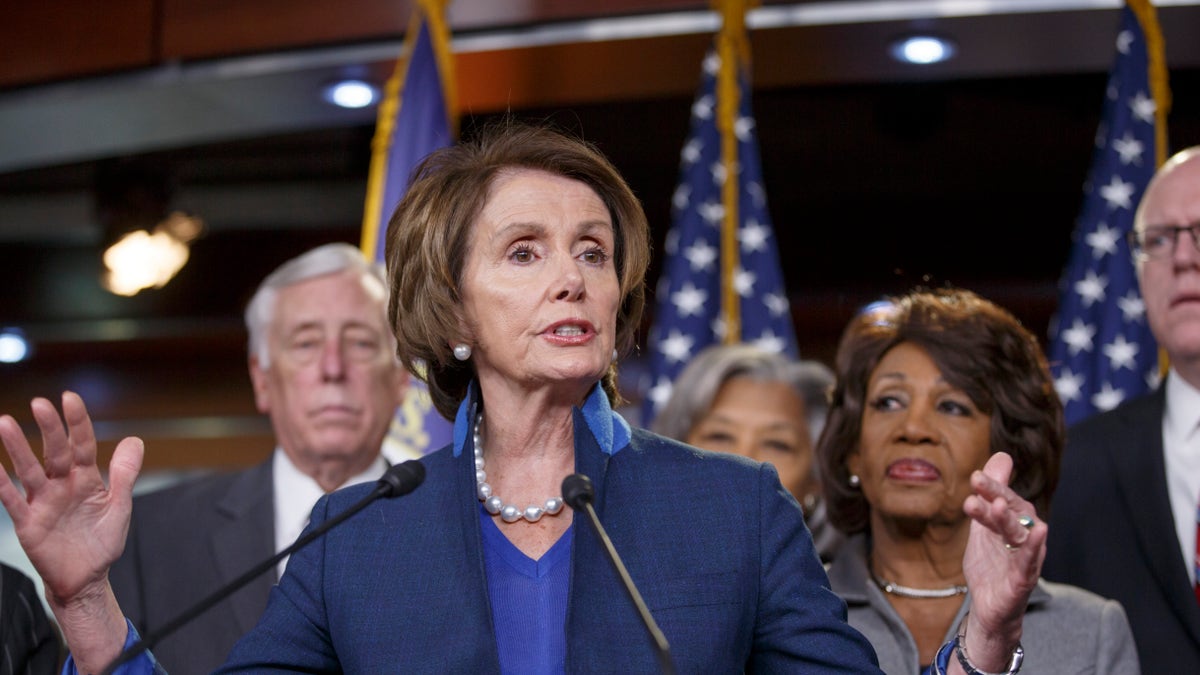
Dec. 4, 2014: House Minority Leader Nancy Pelosi of Calif. holds news conference on terrorism insurance bill. (AP)
A bill that would extend a program meant to help insurance companies cover Americans in the event of terrorist attacks was blocked Tuesday night in the final hours of the Senate session.
The Terrorism Risk Insurance Act has been the subject of considerable debate with some advocates warning of dire consequences if Congress fails to act, such as the cancellation of the Super Bowl. Others argue the free market would step in and take care of any problems.
With the Senate not acting, the bill now will expire Dec. 31 and can only be renewed after the 114th Congress is sworn in next year.
The measure had passed in the House last Wednesday by a 417-7 vote.
The program was enacted in 2002 after the 9/11 attacks led the private market for terrorism insurance to collapse.
The legislation is considered important to economic sectors such as construction, real estate, hospitality and major sports leagues, which fear crippling insurance costs if the program expires and rates skyrocket — or the market for terrorism insurance collapses altogether.
Under the law, the government covers 85 percent of losses after the first $100 million in damages from a terrorist attack. The government has never paid out under the law, and terrorism insurance is less costly, but the hoped-for revival of private-sector alternatives has failed to occur.
"Sadly, terrorism will be an ongoing threat to our nation for the foreseeable future, so it is vital that we remain prepared," House Rules Committee Chairman Pete Sessions, R-Texas, said. "The cost of terrorism still looms large, and acts of terrorism are uninsurable risks that could sink our insurance markets without this program."
The blocking of the bill puts thousands of jobs at risk, Sen. Charles Schumer, D-N.Y., claimed late Tuesday.
"We hope that next year, the House Republican leadership will work with us in the same bipartisan way that the Senate did when we passed a [terror insurance] bill 93-4,” he said in a statement.
The bill was blocked after Sen. Tom Coburn, R-Okla., wanted a provision added to the measure to permit states to opt out of the multistate licensing system. He vowed to block any request to expedite a floor vote on the bill and did so Tuesday.
Fox News' Kara Rowland and The Associated Press contributed to this report.




